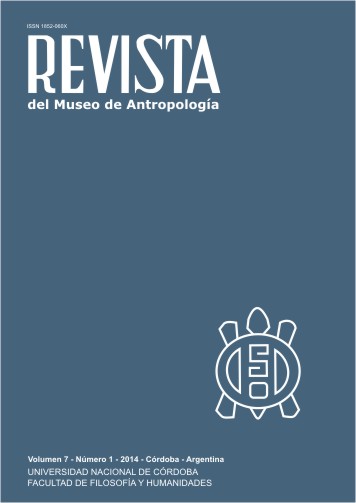“You don’t understand because you are not a teacher”. The meanings of deporte in a socio- political program of education in the province of Buenos Aires (2004-2011)
DOI:
https://doi.org/10.31048/1852.4826.v7.n2.9187Keywords:
sport, social studies about sport, education and social policy, anthropology of the “sports”Abstract
We propose in this opportunity to make an approach to understand the meanings that provincial officials and physical education teachers are assigned to registration of sport in the socio- educational policy documents, projects and public presentations. In particular, we will discuss how is signified, updated and contexts of use of the native category sport by these social actors. Also, will look for a methodologically position in relation with the productions registered within studies “ social sport “ where native terms sport category has not been addressed. We present a hypothesis mode that this was the result of the understanding on the same theoretical terms as a vantage point for critical reflection about our society. These studies leave aside the meanings that social actors condenses sport. This work sign up part of ethnography on the representations and practices about sports of Physical Education teachers who work in the socio- political programs of education in the province of Buenos Aires, during the period between 2004 and 2011.Downloads
References
Alabarces, P. 2000. “Los estudios sobre deporte y sociedad: objetos, miradas, agendas” En Alabarces, P (coord.). Peligro de gol. Estudios sobre deporte y sociedad en América Latina. CLACSO, Buenos Aires, 11-32.
Archetti, E. 1998 “Prólogo” En Alabarces, P; Di Giano, R y Frydenberg, J (Comps). Deporte y Sociedad. Eudeba, Buenos Aires, 9-12.
Bourdieu, P. 1984. “¿Cómo se puede ser deportista?” En Bourdieu, P. Sociología y Cultura. Editorial Grijalbo, México, 193-214.
Bohoslavsky, E. y Soprano, G. 2010. “Una evaluación y propuestas para el estudio del Estado en Argentina” En
Bohoslavsky, E y Soprano, G (Edit.). Un Estado con rostro humano. Funcionarios e instituciones estatales en Argentina (desde 1880 a la actualidad). Universidad Nacional de General Sarmiento – Prometeo Libros, Buenos Aires, 9-55.
Briones, C. 2008. “Formaciones de alteridad: contextos globales, procesos nacionales y provinciales” En Briones, Claudia. Cartografías Argentinas. Editorial Antropofagia, Buenos Aires, 9-36.
Chaves, M. 2010. Jóvenes, territorios y complicidades. Una antropología de la juventud urbana. Espacio Editorial, Buenos Aires.
Damatta, R. 1982. “Esporte na sociedade: Um ensaio sobre o futebol brasileiro” En DaMatta, R e outros. Universo do Futebol. Esporte e sociedade brasileira. Pinakotheke, Rio de Janeiro, 19-42.
Frydenberg, J. 2011. Historia social del fútbol del amateurismo a la profesionalización. Siglo veintiuno editores, Buenos Aires.
Peirano, M. 2004. “A favor de la Etnografía”. En Grimson, A; Lins Ribeiro, G y Semán, P. La antropología brasileña
contemporánea. Contribuciones para un diálogo Latinoamérica. Prometeo Libros, Buenos Aires, 323-356.
Downloads
Published
Issue
Section
License
Those authors who have publications with this Journalaccept the following terms:
a. Authors will retain their copyrights and guarantee the journal the right of first publication of their work, which will be simultaneously subject to the Creative Commons Attribution License (Licencia de reconocimiento de Creative Commons) that allows third parties to share the work as long as its author and his first publication in this journal.
b. Authors may adopt other non-exclusive licensing agreements for the distribution of the version of the published work (eg, deposit it in an institutional electronic file or publish it in a monographic volume) provided that the initial publication in this journal is indicated.
c. Authors are allowed and recommended to disseminate their work on the Internet (eg in institutional telematic archives or on their website) before and during the submission process, which can lead to interesting exchanges and increase citations of the published work. (See The Effect of Open Access - El efecto del acceso abierto)












